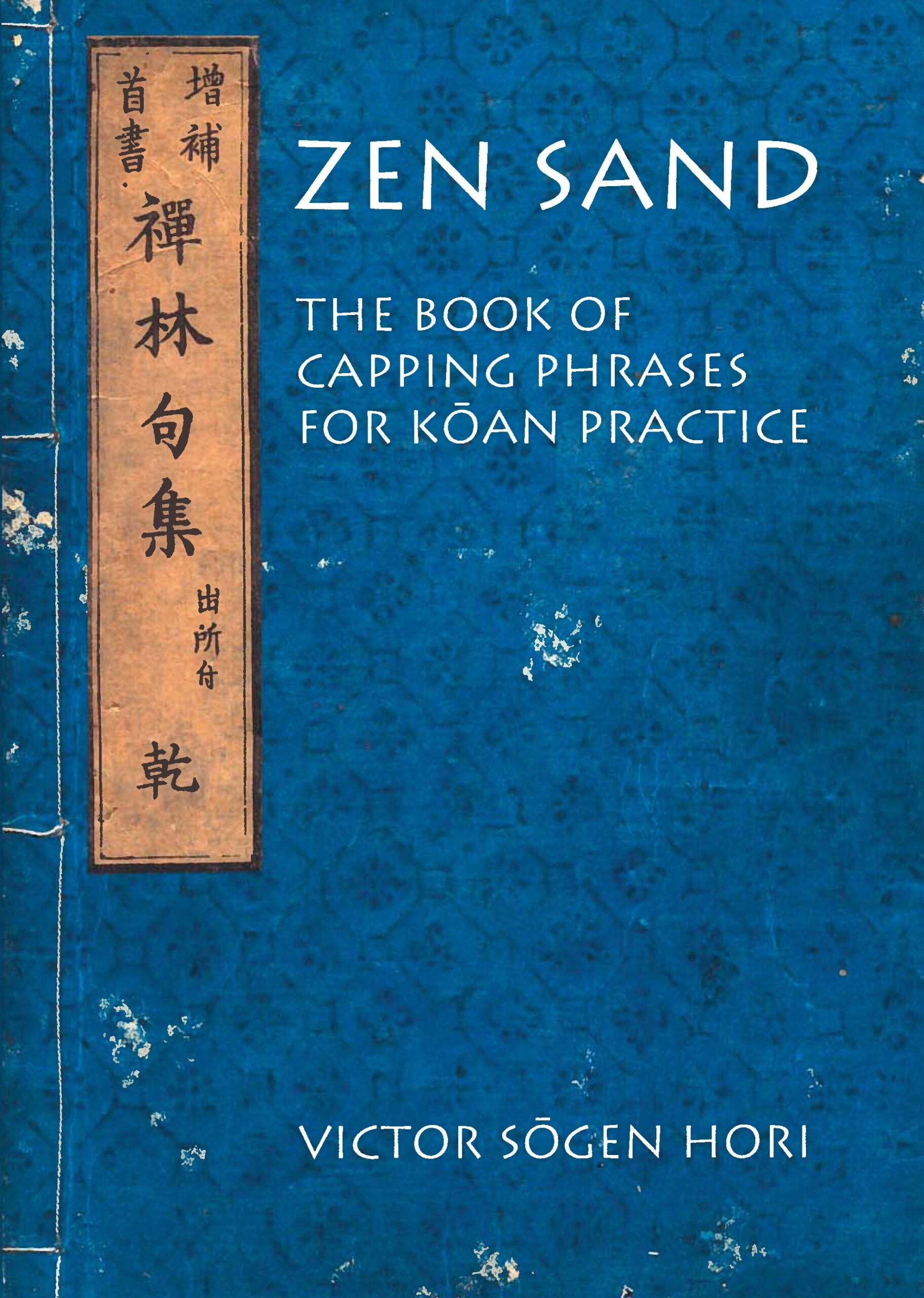Zen Sand: The Book of Capping Phrases for Koan Practice
- About the Book
-
Zen Sand is a classic collection of verses aimed at aiding practitioners of kôan meditation to negotiate the difficult relationship between insight and language. As such it represents a major contribution to both Western Zen practice and English-language Zen scholarship.
In Japan the traditional Rinzai Zen kôan curriculum includes the use of jakugo, or “capping phrases.” Once a monk has successfully replied to a kôan, the Zen master orders the search for a classical verse to express the monk’s insight into the kôan. Special collections of these jakugo were compiled as handbooks to aid in that search. Until now, Zen students in the West, lacking this important resource, have been severely limited in carrying out this practice. Zen Sand combines and translates two standard jakugo handbooks and opens the way for incorporating this important tradition fully into Western Zen practice.
For the scholar, Zen Sand provides a detailed description of the jakugo practice and its place in the overall kôan curriculum, as well as a brief history of the Zen phrase book. This volume also contributes to the understanding of East Asian culture in a broader sense.
- About the Author(s)
-
Victor Sogen Hori, Author
Victor Sôgen Hori, who was ordained in Japan as a Zen monk in 1976, is currently associate professor of Japanese religions in the Faculty of Religious Studies, McGill University.Victor Sogen Hori, Editor
Victor Sôgen Hori, who was ordained in Japan as a Zen monk in 1976, is currently associate professor of Japanese religions in the Faculty of Religious Studies, McGill University.Victor Sogen Hori, Translator
Victor Sôgen Hori, who was ordained in Japan as a Zen monk in 1976, is currently associate professor of Japanese religions in the Faculty of Religious Studies, McGill University.Victor Sogen Hori, Translator
Victor Sôgen Hori, who was ordained in Japan as a Zen monk in 1976, is currently associate professor of Japanese religions in the Faculty of Religious Studies, McGill University.
- Reviews and Endorsements
-
- Zen Sand is a thorough and excellent piece of scholarship that will, I suspect, be the standard English-language work on jakugo for many decades to come. No serious student or practitioner of Zen will want to be without a copy.
—Religious Studies Review - Not only a well-documented and meticulously researched, comprehensive sourcebook. . . . It also succeeds superbly in setting the record straight and clarifies some widespread but misguided notions about Zen.
—Japanese Journal of Religious Studies - This book is definitely the most important English-language work on the history of capping phrases and contemporary Rinzai practice. It is also useful in that it allows students to acquaint themselves with numerous Chinese allusions and classical stories. Even for general readers, this book offers unique opportunities to ruminate on each beautiful phrase, especially while sipping a cup of green tea.
—Journal of Buddhist Ethics - The best scholarly book on actual Zen practice in Japan to appear in recent decades.
—Journal of Chinese Religions - This beautiful volume is recommended unreservedly. It is a major contribution to Western zen for academics and practitioners alike.
—Zen Book Reviews - The whole literary and cultural baggage of Zen Buddhism—key Buddhist concepts, Confucian and Taoist adages, the most famous figures of Chinese history and legend, the most widely quoted lines of the great Chinese poets—all in one book. Zen Sand is a gold mine!
—Burton Watson - The publication of Zen Sand marks a major step in the transmission of Rinzai Zen to the West. By providing a complete translation of the major Zen phrase anthologies, it offers a new opening to both the literature and the practice of Zen. Of particular importance is the opportunity it provides for English-speaking students to work with capping phrases, one of the most important elements of traditional kôan study. Enriched by Sôgen Hori’s detailed introduction, which clarifies the function of the phrases in Zen practice and does much to dispel misunderstandings of kôan work, Zen Sand is certain to become a valuable resource for Zen students everywhere.
—Harada Shôdô, Sôgen-ji Temple
- Zen Sand is a thorough and excellent piece of scholarship that will, I suspect, be the standard English-language work on jakugo for many decades to come. No serious student or practitioner of Zen will want to be without a copy.
- Supporting Resources
-










